Welcome back to Sports Illustrated’s Magic Eight! We’ve reached the eve of March, and after an unpredictable regular season that has been marked by tons of upsets to highly ranked teams, we’re on pace for an action-packed March.
For those new to the Magic Eight, it’s a tradition started by the late Grant Wahl in his days covering college hoops for SI. The premise is simple: Separate the pretenders from the contenders and pick the eight teams that can win the national championship. The rules: Only six of the eight can come from the top eight of the current AP poll (a dated institution, we know), and one must come from outside of the top 15. This year’s Magic Eight also fits that same criteria when looking at KenPom’s efficiency rankings.
Related: Men’s Bracket Watch: Washington State Locks in, Wake Forest Breaks Through
Without further ado, here’s who made the cut and who came up just short.
Purdue Boilermakers
Yes, I’ve seen Purdue’s March history, and yes, I’m still picking them as part of my eight anyway. The Boilermakers have been one of the only consistently great teams in college basketball this season, racking up win after win against the nation’s best teams. They’ve beaten five of KenPom’s top 15 teams already, swept the most loaded Maui Invitational field ever, beat the Arizona Wildcats and Alabama Crimson Tide on neutral courts and have mostly cruised through the rough-and-tumble Big Ten. Slap any other name on Purdue’s jerseys, and they’re a shoo-in for this list.
From an Xs and Os standpoint, the critical development with this season’s group compared to last season is the emergence of a high-end point guard in Braden Smith. Smith’s absence on the Bob Cousy Award list is an absurdity: He has been one of the nation’s best ballhandlers and gives Purdue far more options offensively in how it plays beyond just forcing the ball inside to Zach Edey. Add in shot-making veteran Lance Jones, who doubles as a dogged defender, and Purdue has ways to win when teams sell out against Edey. The Boilers dominate the glass, maintain a huge free throw advantage against their opponents and shoot the three as well as anyone in the nation. Again, none of this guarantees winning six straight, but it’s hard to argue against the notion that the Boilers have the necessary components to complete the redemption arc.
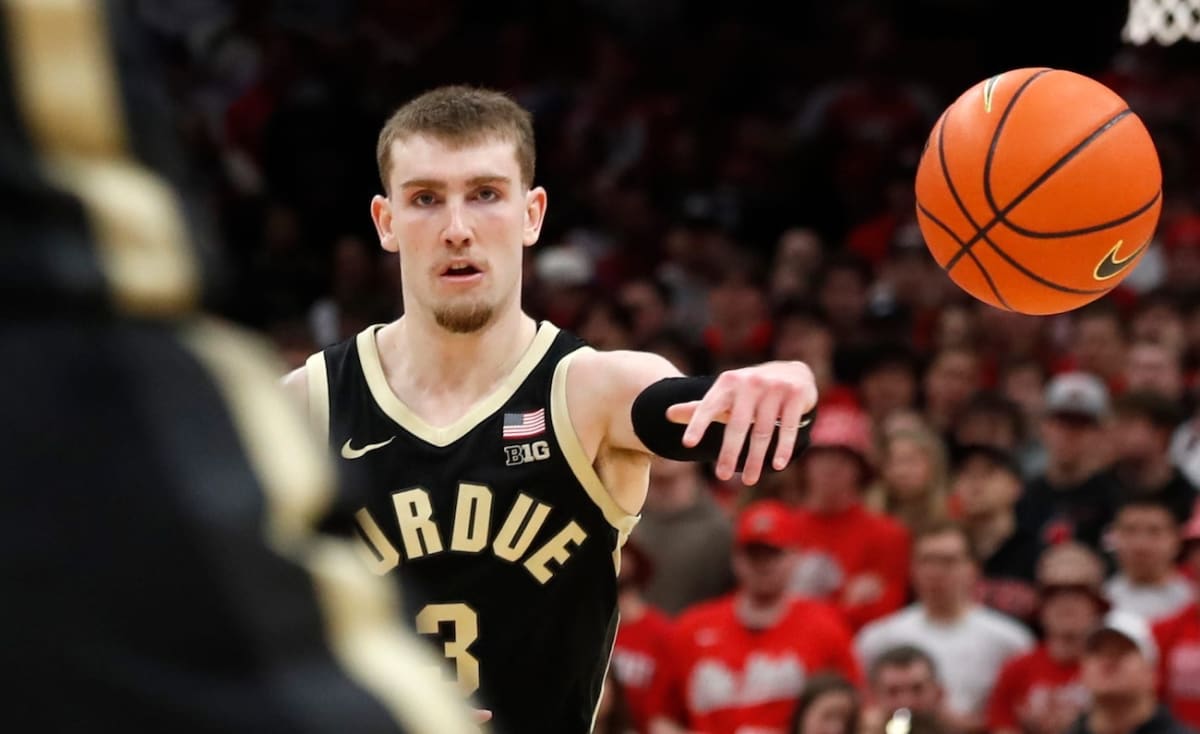
Alex Martin/Journal and Courier/USA TODAY Network
UConn Huskies
Could the sport see its first repeat champion since the Florida Gators in 2006 and ’07? If the Huskies do repeat, it will have been a far more impressive accomplishment than what the Gators pulled off, given how much work Dan Hurley had to do in the spring to reshape this roster. The result? A group that, at times, has looked even better (or at least more consistent) than last season’s squad.
UConn has so many ways to beat its opponents. Cam Spencer and Alex Karaban can light you up from beyond the three-point arc. Tristen Newton can dissect you in ball screens as either a scorer or distributor. Donovan Clingan can dominate the rim at both ends. Freshman Stephon Castle keeps improving. UConn’s defense forces teams into lots of isolation possessions and lots of tough, contested midrange shots, the ones every team wants to concede. Plus, the experience of last March for the likes of Newton, Karaban and Clingan should prove invaluable on the biggest stage. It’s incredibly hard to win six straight in March once, let alone twice, but UConn has all the makings of being a worthy contender.
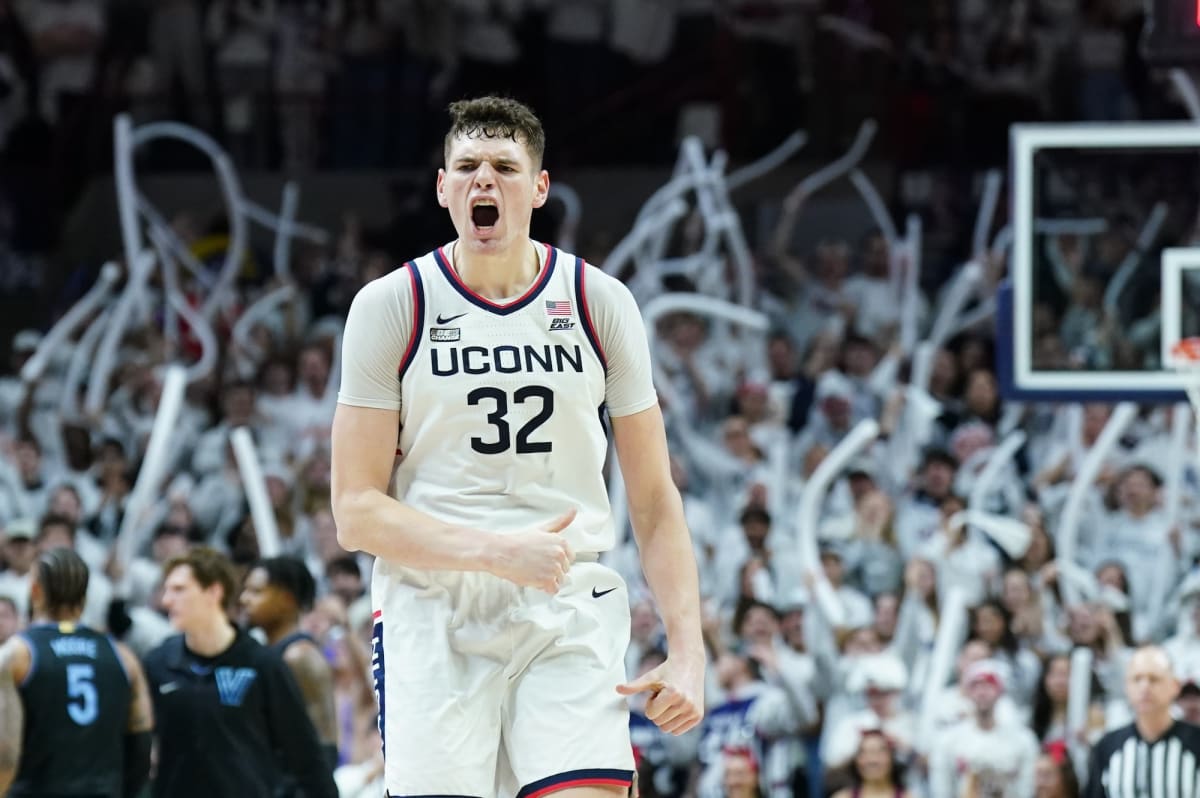
David Butler II/USA TODAY Sports
Houston Cougars
If you can tame the beast that is the Big 12, you can win the whole thing. Houston has done just that, making it a necessary inclusion in the Magic Eight. Kelvin Sampson has built perhaps the most consistently great program in college basketball over the last half-decade, and it would be well earned for that to be paid off with a title run this season.
The driving force behind KenPom’s top-rated team is its ferocious defense, a unit that ranks as by far the best in the land. The Cougars’ defense holds a wider edge on the No. 2 Tennessee Volunteers’ D than the Vols compared to No. 20 UConn. Houston forces turnovers at an elite clip and defends the rim at an elite level thanks to its length and swarming scheme. Point guard Jamal Shead is perhaps the best point-of-attack defender in the country, and rangy frontcourt players Ja’Vier Francis, J’Wan Roberts and Joseph Tugler all wreak havoc in Houston’s aggressive ball-screen coverages.
Offensively, there are more question marks, especially against elite competition. Shead has a knack for getting into the teeth of the defense and will need to be able to score tough buckets in those situations for the Cougars to win it all. Recently, LJ Cryer’s inconsistency in Big 12 play has made easy offense harder to come by.
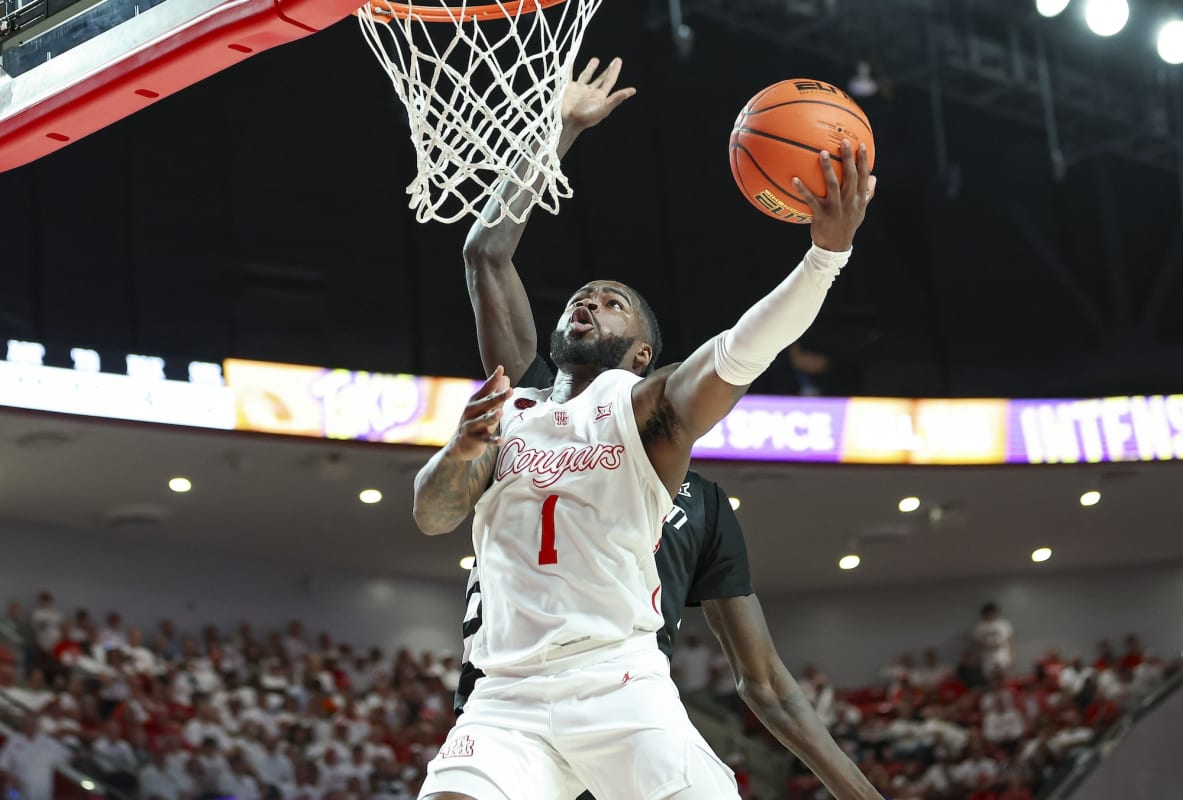
Troy Taormina/USA TODAY Sports
Tennessee Volunteers
Tennessee has consistently been elite on the defensive end under Rick Barnes. The difference this season: The Volunteers have the offense to match. Barnes’s Vols have had their fair share of March heartbreak, failing to break through past the Sweet 16 despite earning top-five seeds in each of the last five NCAA tournaments. But those teams didn’t have a scoring wing like Dalton Knecht, the Northern Colorado transfer who has been among the best shot-creators in college basketball. Knecht can generate offense by himself, using his deep bag off the bounce and high release to get shots off even against elite defense. Knecht has keyed Tennessee’s emergence into a top-25 offense in the sport per KenPom, lightening the load on the likes of Zakai Zeigler and Santiago Vescovi in the backcourt and opening the floor for big man Jonas Aidoo to operate on the inside. Tennessee has gone from a team that needs to play rock fights to win to a group that can just as easily outscore you as it can suffocate you defensively.
Related: How Dalton Knecht Gives Tennessee a Shot at Elusive Title
The X factor, though, is Zeigler. How different might things have been in last year’s Sweet 16 against the Florida Atlantic Owls had Zeigler not torn his ACL just weeks before the Big Dance tipped off? He took a bit to return to full strength this season, but has flourished in league play, averaging better than 13 points, seven assists and 2 steals per game. That included a 14-assist, zero-turnover masterpiece last weekend in a blowout win over the Texas A&M Aggies. He’s the straw that stirs the drink for Barnes’s team, the guy who helps them push the tempo offensively and sets the tone guarding the ball defensively. If the Vols make a Final Four or cut down the nets, he’ll be a major reason why.
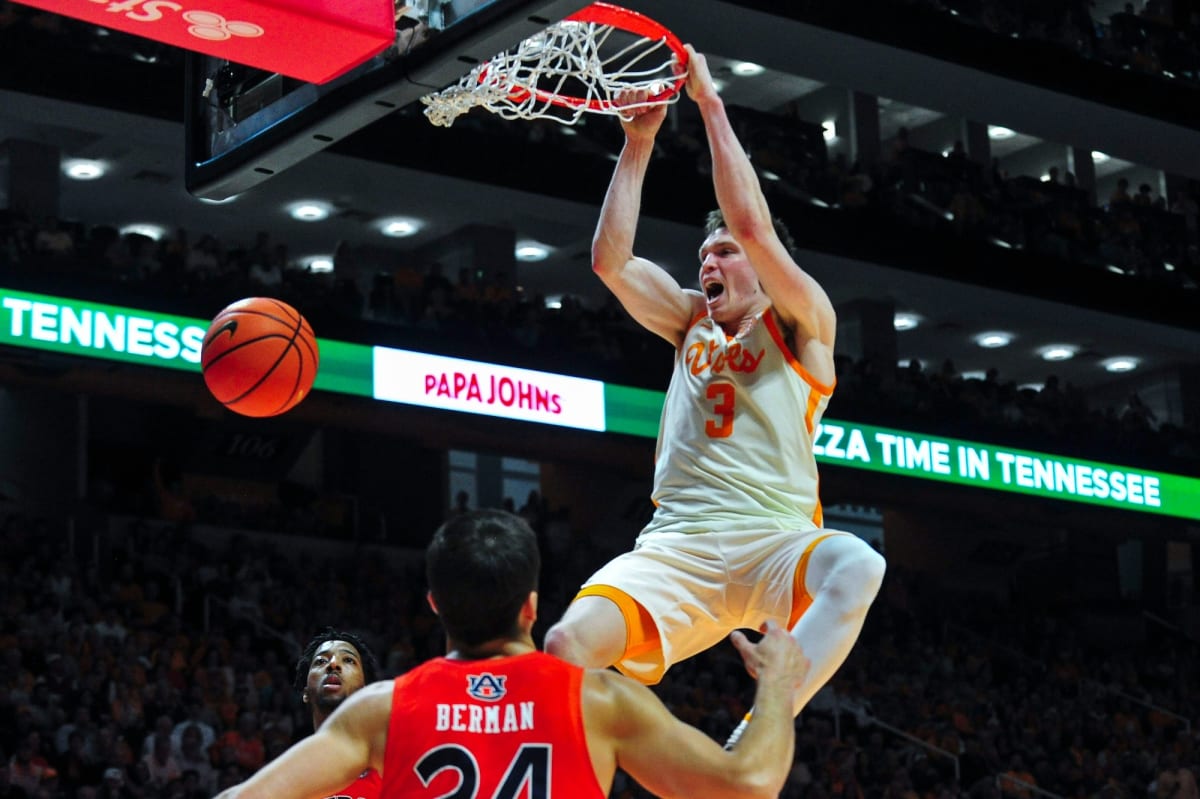
Angelina Alcantar/News Sentinel/USA TODAY Network
Arizona Wildcats
Outside of Purdue, perhaps no team was more impressive in nonconference competition than Arizona. The Wildcats won at the Duke Blue Devils, blitzed the Wisconsin Badgers and Alabama and tamed the Michigan State Spartans on a neutral court, with their only two losses coming to Purdue and Florida Atlantic. Since, the Wildcats have had some occasional lapses against a weak Pac-12 but have shown little to indicate they don’t have a championship makeup. Veteran guard Caleb Love has played the best basketball of his career in Tommy Lloyd’s up-tempo system, while power forward Keshad Johnson also has March experience from last year’s title game trip with the San Diego State Aztecs.
The big question the Wildcats will have to answer in March is its point guard play. Sophomore Kylan Boswell has been solid but not spectacular, and most of Arizona’s losses have coincided with his worst performances of the season. He was just 2-of-8 from the field in the Wildcats’ surprise home loss to the Washington State Cougars last week and was held scoreless in Arizona’s losses to the Oregon State Beavers and Washington State in January. He has only scored in double figures once in a Wildcat loss, and it took him 16 shots to do it in the team’s 3OT loss to FAU. Boswell playing well puts less pressure on Love to play hero-ball, lets Pelle Larsson settle into the game as a secondary playmaker and makes life a bit easier for Oumar Ballo down low. Inconsistencies at the point plagued Arizona last season in its shocking first-round exit to the Princeton Tigers, and Boswell needs to ensure that history doesn’t repeat itself.
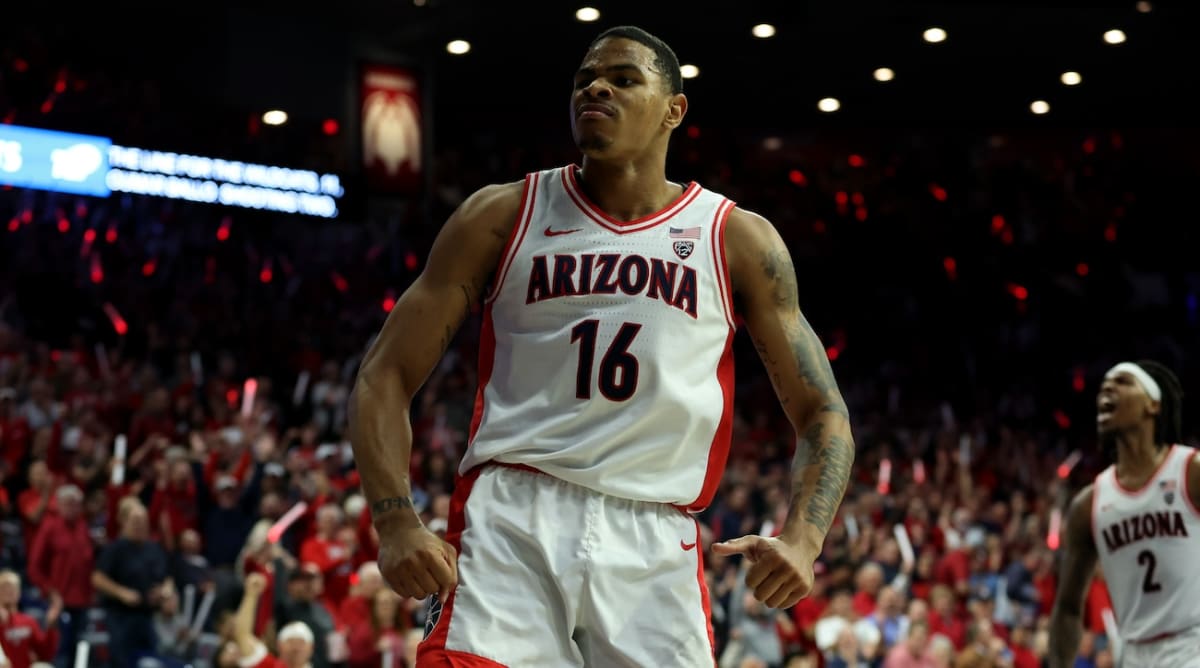
Zachary BonDurant/USA TODAY Sports
Auburn Tigers
Auburn has been an analytics darling for the majority of the season, surging up rankings like KenPom and the NET thanks to plenty of blowout wins. All 21 of the Tigers’ wins this season have come by double figures. The problem? Consistency. Auburn hasn’t quite been able to put together that sustained stretch of dominant basketball against top competition. In some ways, its profile is comparable to that of UConn a season ago: nearly untouchable at its best, disappointing at its worst, with the numbers fully believing in the Tigers as an elite team despite some surprising individual results.
The Tigers are so deep, athletic and physical at every spot. Center Johni Broome deserves more love in the All-American conversation. Auburn shares the ball at an elite level and gets major bench production from the likes of Chad Baker-Mazara and Dylan Cardwell. A healthy Jaylin Williams is a must after the Tigers star forward injured his knee in a loss earlier this month to the Kentucky Wildcats, but he returned Wednesday vs. Auburn and if he stays healthy, there’s no clear hole in this roster. If there’s a team likely to be seeded somewhere in the No. 3 to No. 5 range that could go on a tear through March like UConn did a year ago, my pick would be Auburn.
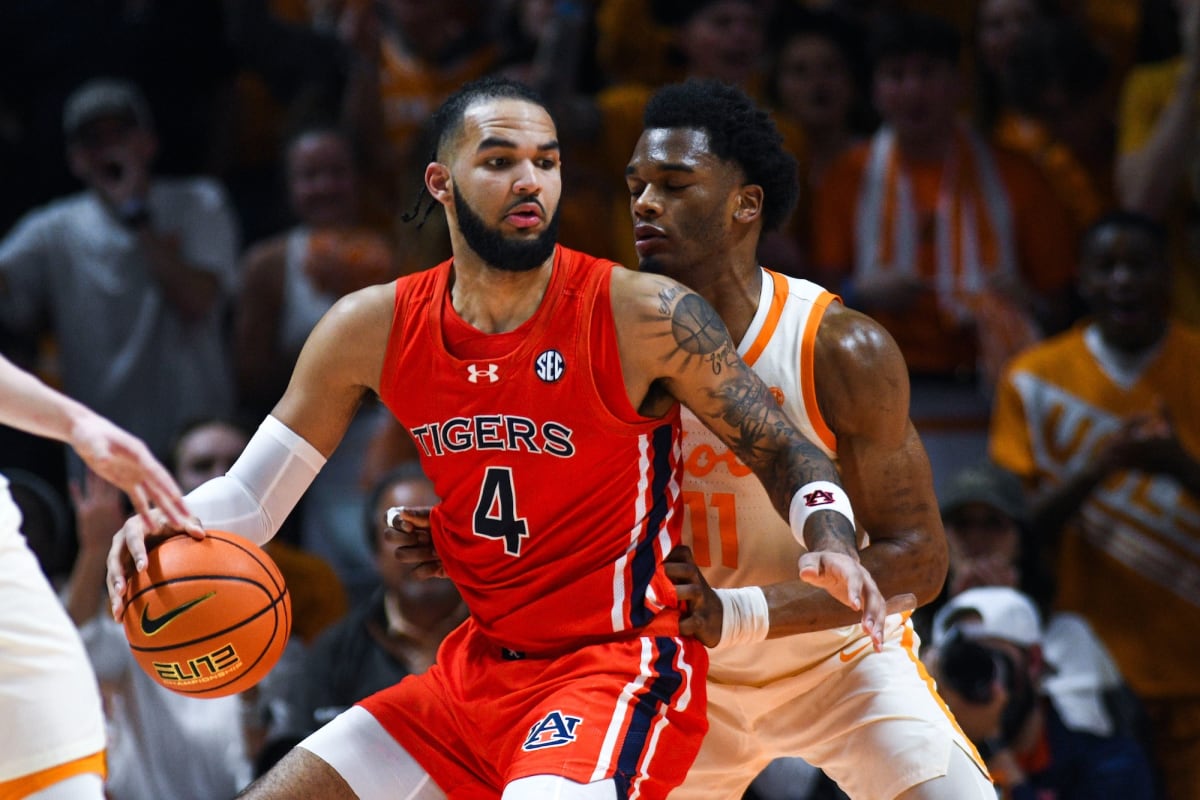
Angelina Alcantar/News Sentinel/USA TODAY Network
North Carolina Tar Heels
Edey is, by a wide margin, the favorite to win the National Player of the Year. If not for his presence though, North Carolina’s R.J. Davis would have a legitimate claim to the award. The senior has had a phenomenal season as the Tar Heels’ unquestioned alpha, capped by his 42-point outburst Monday against the Miami Hurricanes. Around him, Hubert Davis trots out lineups heavy on floor-spacing, giving Davis room for one-on-one matchups off the bounce and putting more pressure on opposing centers to stand tall against Armando Bacot on the block. The Heels have been elite on the defensive end since the start of conference play, ranking as a top-three defense nationally per T-Rank since Jan. 1. Elite defense plus the best guard in the country is a pretty powerful March combination.
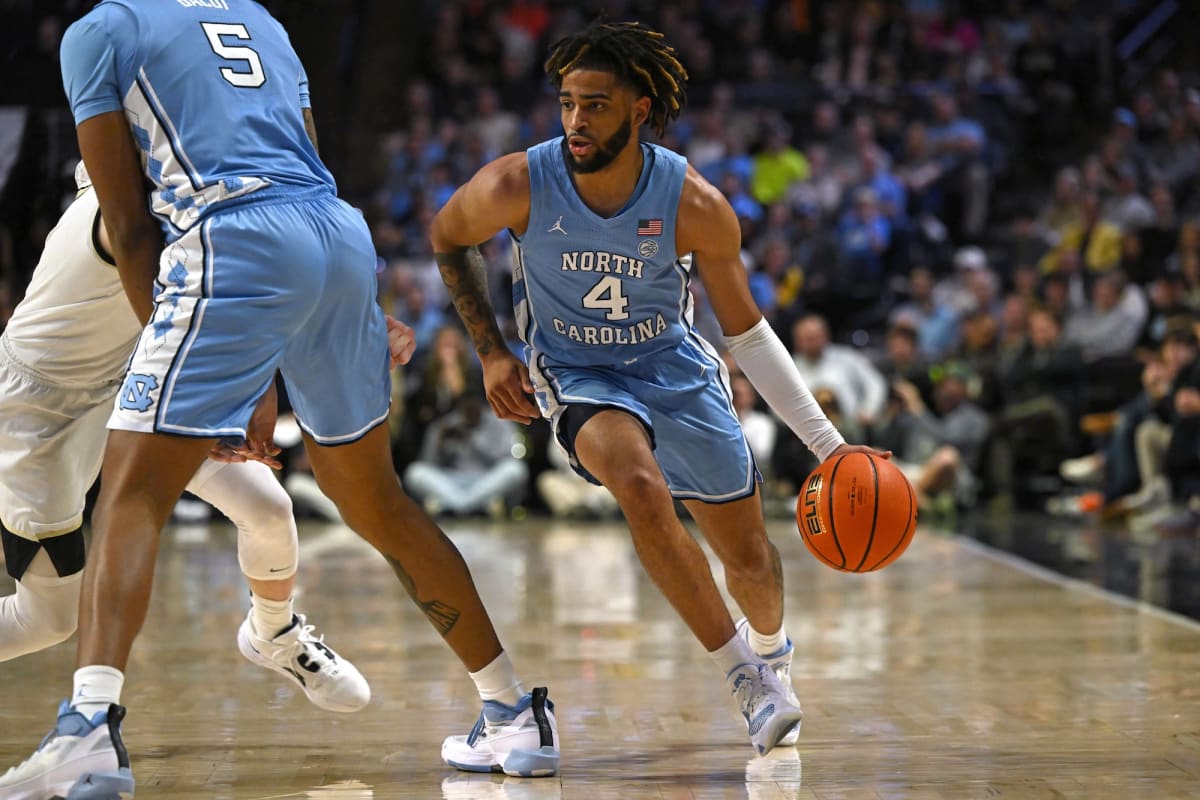
William Howard/USA TODAY Sports
Kentucky Wildcats
The Wildcats landing at No. 16 in this week’s poll is a gift for the purposes of this exercise. There may not be five teams in the nation more talented than John Calipari’s bunch, which at times has looked positively electrifying this season. Guard play wins in March, and the Wildcats have it in droves thanks to Reed Sheppard, Rob Dillingham, D.J. Wagner and Antonio Reeves. Kentucky won’t fall victim to a bad night by a star player dooming its hopes: Six different Wildcats have now scored at least 20 points in a game once this season, with five of those six having topped 25 at least once. The consistency has been lacking at times, but there’s no question Kentucky has enough raw talent to beat anyone in the nation. This group has often been compared to Kentucky’s 2014 team, which went 12–6 in the SEC despite being loaded with future NBA talent before surging to the national championship game as a No. 8 seed.
The primary concern for Kentucky is its defense, although that worry is slightly less salient than it was earlier in February after strong recent performances. Kentucky’s backcourt is small and inexperienced, and its younger bigs (particularly Aaron Bradshaw and Zvonimir Ivisic) have struggled with ball-screen coverages. The effort level has improved of late, but this team is still not built to be elite defensively, and if Kentucky exits the NCAA tournament early again, it will likely be its defense that led to its demise. It’s also worth mentioning that much of Kentucky’s perceived recent defensive improvement can be tied to cold three-point shooting by its opponents and could regress back to the mean by March.
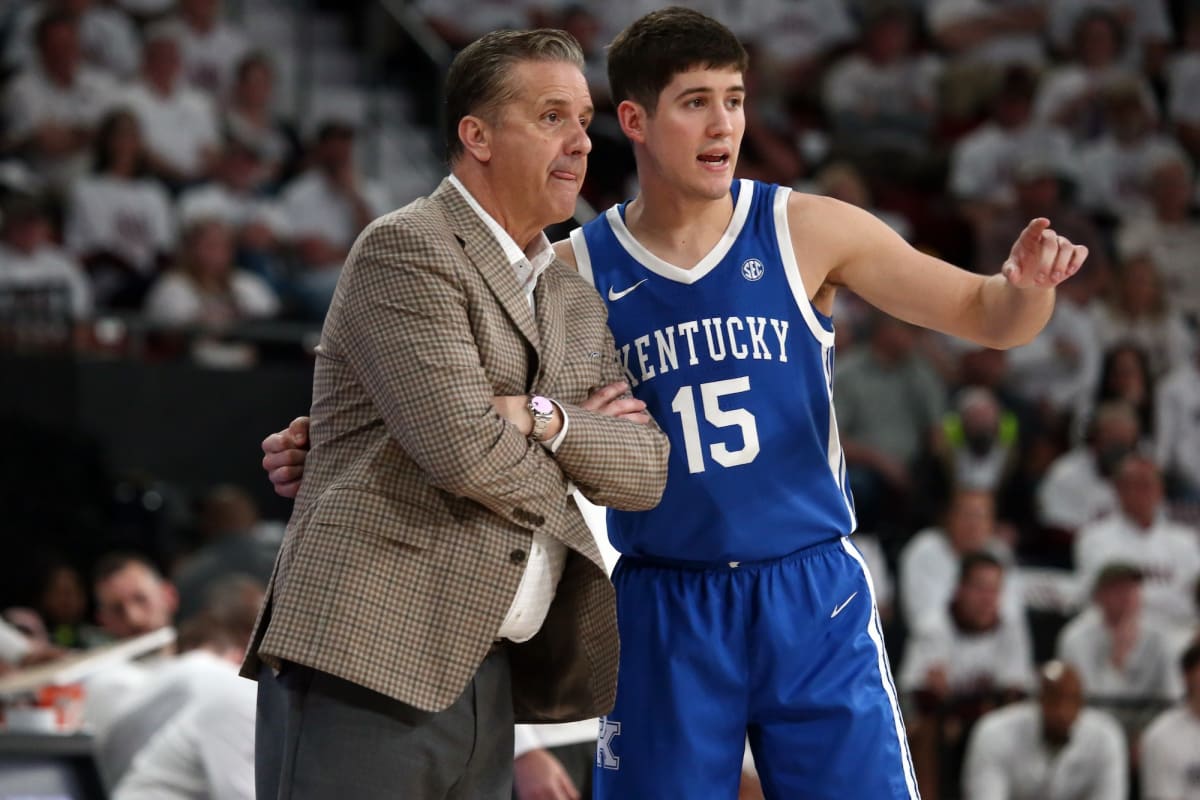
Petre Thomas/USA TODAY Sports
Notable Exclusions
Kansas Jayhawks
I left out the Jayhawks in 2022 and they went on to win the national title. Will history repeat itself? I’m just too concerned about Kansas’s depth, especially with star wing Kevin McCullar nursing a knee injury right now. For a team that was already very thin outside of its starting five, the McCullar question mark is too big for me to get over … and the Jayhawks losing at home to BYU without him is a rather ominous sign.
Duke Blue Devils
Does Duke have a late-game closer? With sophomore point guard Tyrese Proctor’s inconsistencies, the Blue Devils don’t have that go-to guy in the backcourt you want with a title team. That said, it’s hard not to be impressed with how freshman guard Jared McCain is playing, and big man Kyle Filipowski remains a matchup problem.
Related: Forde Minutes: Closer Look at Bubble Teams and Selection Committee Questions
Alabama Crimson Tide
Alabama’s offense is in rare air, with the only three teams to ever post better efficiency splits at least reaching the national title game. But the Tide’s defensive woes are too hard to ignore, especially after they were ripped to shreds by Kentucky last weekend. This team has the firepower to beat anyone, but it’s hard to imagine a team this poor defensively winning six straight in March.
Iowa State Cyclones
Iowa State’s case for consideration is similar to Houston’s: elite defense that forces tons of turnovers and high-level point guard play. Unfortunately, the Cyclones can’t play NCAA tournament games in Hilton Coliseum, where they are undefeated this season.
Marquette Golden Eagles
Marquette has one of the best point guards in college basketball in Tyler Kolek and an outstanding big in Oso Ighodaro. That said, it’s hard to get the vision of that 28-point demolition the Golden Eagles took at the hands of UConn earlier this month out of your head when trying to decide whether Marquette can hold up against elite competition in March.
Illinois Fighting Illini
Illinois being a switchable, five-out team makes me inclined to believe that the Illini are better suited for March than Big Ten teams of old. They’ve struggled mightily defending the paint lately though, ranking outside the top 100 in defensive efficiency in the last six weeks. That’s a scary concept in the Big Dance.
Creighton Bluejays
Creighton’s win last week over UConn was highly impressive and a reminder the Bluejays are among the most dangerous teams in the sport when shots are falling. But are the Jays too reliant on the three-point shot for a single-elimination setting?







